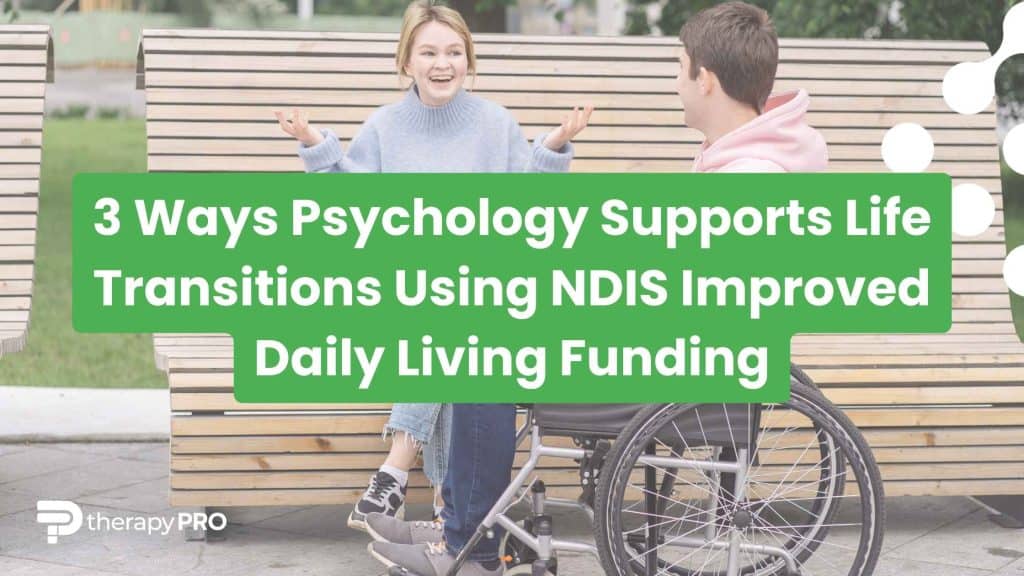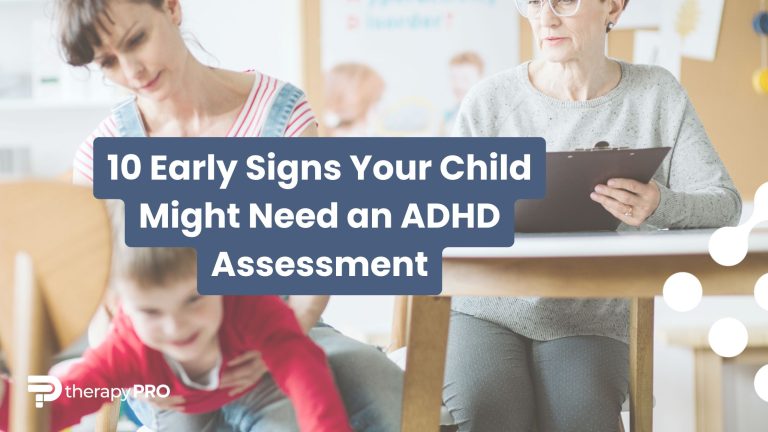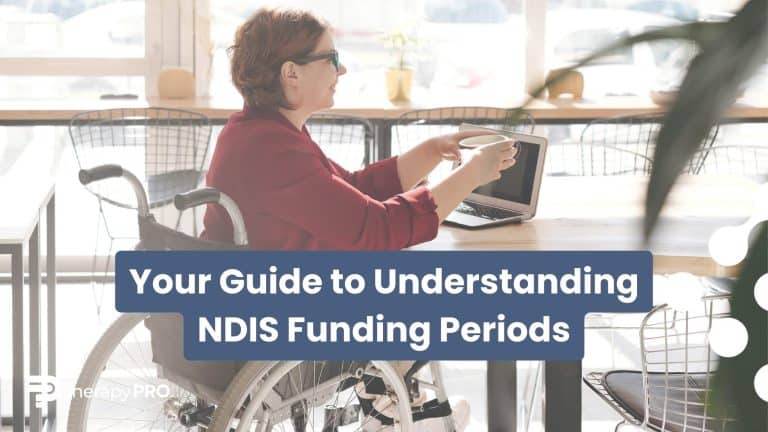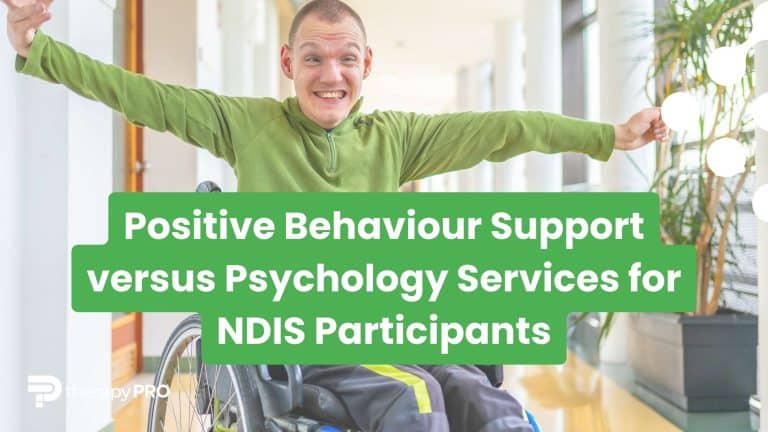3 Ways Psychology Supports Life Transitions Using NDIS Improved Daily Living Funding
Big life changes can bring about excitement, uncertainty, and for some participants, the need for extra support under NDIS Improved Daily Living funding.
Whether it’s a child starting school, a teenager navigating friendships, or a young adult preparing for work or uni, life transitions can leave us feeling unprepared for new challenges. Even more so if we’re lacking the social, problem solving or coping skills required for the next step.
In this article we explore how psychological input can support NDIS participants of all ages to build capacity and confidence during key life stages.
Understanding NDIS Improved Daily Living (IDL) funding
If you’re new to the NDIS or supporting someone with a plan, you might wonder what “Improved Daily Living” funding is for.
This funding category sits within the Capacity Building budget and is designed to help participants:
- Build independence
- Improve skills to access the community and build social connections
- Participate more fully in everyday life
- Meet NDIS goals
NDIS psychology services are often included under this category, particularly when the goal is to improve social and community engagement, develop self-management skills, or develop emotional regulation strategies.
In the sections below, we focus on how psychology supports may be accessed by NDIS participants using their Improved Daily Living funding.
If you’re a parent seeking fee-for-service support, this information may still be useful, but funding pathways and referral processes may differ.
1. Starting school or kindy: Early transitions
The move to kindy or school is a big milestone, and for some children, it can also bring challenges.
NDIS psychological support can help children with disabilities:
- Adjust to new routines and environments
- Develop emotional regulation and coping strategies
- Build confidence to engage in learning and play
- Strengthen communication or social interaction skills
If a child is showing signs of distress, withdrawal, or difficulty participating in daily activities because of their disability at school, it may be appropriate to explore psychological input to help overcome barriers and access wrap-around supports
2. Transitioning to high school: Social and emotional growth
The move from primary to high school often brings new social challenges and pressure. It can be a huge leap to go from one core teacher in one classroom to multiple teachers scattered around a campus. High schoolers also need to be more independent, follow timetables, and manage deadlines for tasks and assignments – things they may not have had to consider during primary school.
NDIS psychologists can support young people to:
- Navigate changing peer dynamics
- Understand and express emotions more effectively
- Strengthen problem-solving or planning skills
- Increase confidence in new environments
- Build interpersonal skills and set relationship boundaries
- Develop resilience when facing setbacks or uncertainty
And if these areas are connected to the participant’s NDIS goals and are a result of the child’s disability, sessions may be funded under Improved Daily Living.
3. Leaving school: Preparing for adulthood
Whether the goal is to enter the workforce, study, or live more independently, young adults often face big changes in routine, responsibility, and identity.
NDIS psychology input may support participants to:
- Build self-advocacy and decision-making skills
- Manage changes in structure, supports, and routines
- Strengthen communication and goal-setting
- Develop emotional regulation for workplace, university, or community participation
These skills can directly align with many participants’ NDIS goals and are supported through Improved Daily Living funding.
When is it time to seek support?
There’s no one-size-fits-all answer, If your child has required intervention to support previous life stage transitions it may be helpful to unpack support needs before the next big step. This may involve building on previously helpful strategies and problem-solving upcoming events while building new skills.
If your child is already struggling, here are a few signs that psychology may be helpful:
- A noticeable change in mood, participation, or communication during a life transition
- Difficulty coping with change, managing big feelings, or staying regulated
- Social withdrawal and school refusal
If these signs are present, it may be time to consider psychological input under the participant’s current NDIS plan or bring it up at your next plan review.
Need help navigating next steps?
At Therapy Pro, our psychologists work alongside participants and their families to support meaningful goals, especially during times of change. We offer mobile and telehealth appointments across a wide range of locations.
If you’re unsure whether psychology supports are the right fit, or how to use NDIS Improved Daily Living funding, we’re here to help.
Start a referral here or get in touch with our friendly team to learn more.
About the author: Therapy Pro psychology team
This article was written with input from the Therapy Pro psychology team.
At Therapy Pro, our psychology team supports people across the lifespan to build the skills, confidence, and capacity they need to participate fully in everyday life. We work with children and people across the life span tailoring psychological supports to each person’s goals, strengths, and environment.
Our psychologists offer a range of services, including fee-for-service psychological assessments, NDIS capacity building interventions, emotional regulation strategies, support with behaviour, and skill development for greater independence. We work in partnership with families, support coordinators, educators, and other allied health professionals to deliver therapy that is person-centred, evidence-informed, and goal-focused.
We support many NDIS participants through Improved Daily Living and Improved Relationship funding, helping clients build functional skills related to communication, decision-making, social interaction, resilience, and more. Services are delivered through home or school-based sessions or telehealth, depending on what works best for you.
To learn more about how our psychology team can support you or someone you care for, visit our NDIS psychology page.




